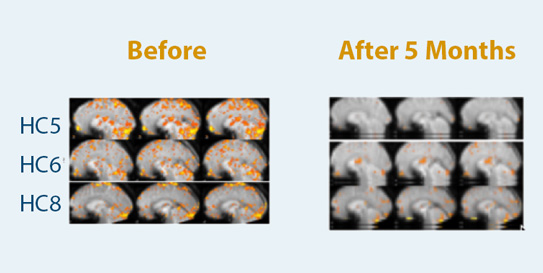One of the commonly reported effects of the practice of the Transcendental Meditation® (TM) technique by veterans is that the experience of pain decreases, and many report decreasing use of pain medication after learning. Although researchers have not conducted research specifically on reduction of pain in veterans resulting from TM® practice, this research has been done on other populations. TM’s effect on the experience of pain seems to come from
- Resolution of physiological sources of pain, due to stress reduction and the promotion of physiological repair. (Stress is known to be a magnifier of pain.)
- Increased tolerance to pain.
Published research has shown:
- Reduced frequency of pain in industrial workers (Japanese Journal of Public Health 1990; 37:729)
- Reduced headaches and backaches (Anxiety, Stress and Coping: International Journal 1993; 6:245-262)
- Reduced medical care utilization for pain-related conditions such as chest and abdominal pain (American Journal of Managed Care 1997; 3:135-144)
Research has shown that the brains of TM practitioners respond less to the same experience of pain as those of non-meditators. In a study published in NeuroReport (August 21, 2006), long-term meditators and non-meditators both self-reported the same subjective experience of pain when putting fingers in hot water. The brain activity in the long-term meditators, however, was 40 – 50% less than that of the non-meditators. They then taught the non-meditators TM. After five months of practice, the new meditators brains showed the same 40-50% reduction in brain activity that was seen in the long-term meditators.
Reduction in Brain Response to Pain

